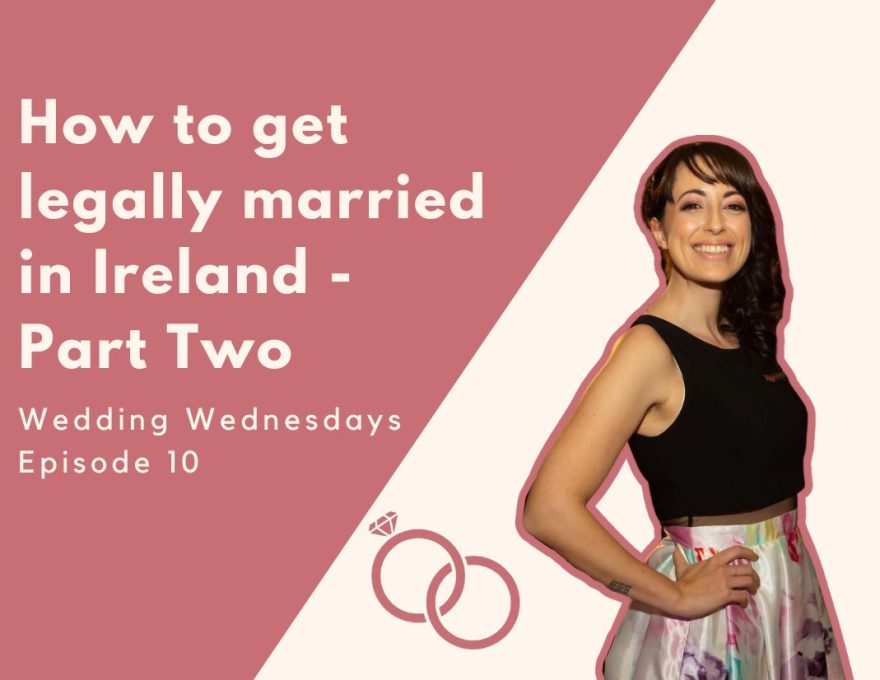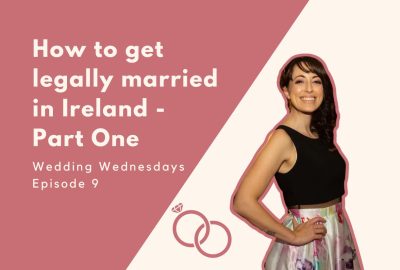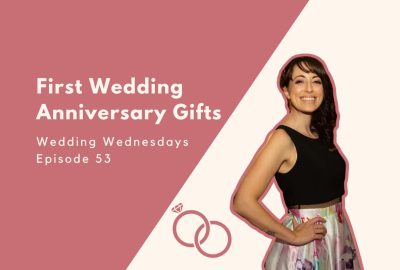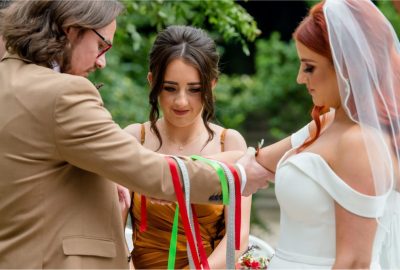We’re back with Part Two because we know you have lots of questions about how to get legally married in Ireland. A HUGE thank you to Romy McAuley and Louise Bradshaw for joining us again and sharing their incredible expertise!
Click here to listen to Part One.
Listen on Apple podcasts here!
Episode breakdown
Different types of ceremonies in Ireland:
Civil Ceremony – This is a legalised ceremony with the civil registration office and an HSE registrar. You will either get married at the registry office or at an HSE approved wedding venue.
Religious Ceremony – Catholic Church, Protestant Church, Muslim, Pagan, Multi-faith, or any other type of religious ceremony. For the majority of these, you will be going to the religious building (such as a church) or the solemniser can go out to your wedding venue.
Secular Ceremony – By definition it’s a secular organisation. There are two bodies that are on the HSE list (Humanist Association or Daragh Malloy).
Non-Legal Ceremony – Independent celebrants that work across the country. They can hold a wedding ceremony for you but cannot legally marry you.
It’s important that you know which type of ceremony you are opting for, so you can tick the correct box on your forms.
Please note that the HSE registrars only work at certain hours on Monday to Friday, and will charge a fee to come out to your wedding venue. If they do come to your venue, there is often a set time they can do that.
Most legal celebrants and solemnisers are able to legally marry you without any sort of religion or faith-based ceremony. They are all-inclusive and able to marry anyone or any faith or no faith.
If you have a humanist ceremony in Ireland, will the marriage be legally recognised in the UK?
Yes, if your marriage is legal in Ireland it will be recognised all around the world.
Some ceremonies around the world (such as Spain and France) take place in two parts; one in the city hall venue and one at a ceremony venue. If you are having a destination wedding, outside of Ireland, be sure to look at the details of exactly how to get married so your marriage is legally recognised in Ireland.
If you one partner is Catholic and the other is Church of Ireland, how does this work legally?
This makes no difference, legally! A solemniser or legal celebrant can marry couples of multi-faith or no-faith. They can find beautiful ways to blend elements from each ceremony type, such as prayers, readings or music. It’s possible to do this and be respectful to both faiths, being all inclusive.
Can my friend officiate my wedding? Can you do this and have it be legal?
If the person who officiates your wedding ceremony isn’t on the HSE list, they can’t legally marry you or solemnise the marriage. You certainly can have your friend conduct the ceremony for you, but it won’t be legalised if they do this alone.
You could have the paperwork done separately to your wedding ceremony, such as going to the registry office a few days before the wedding. You would be legally married before you have your ceremony, and then on the day of your wedding, your friend would conduct a symbolic ceremony for you.
The other possibility is to have a solemniser come out to your ceremony and work alongside your friend. It’s extremely important to understand that your solemniser works for a body/organisation who as authorised them to the HSE to solemnise marriages. The ceremony itself must be overseen by that body! For example, you couldn’t go into a Catholic Church and have a Muslim ceremony.



